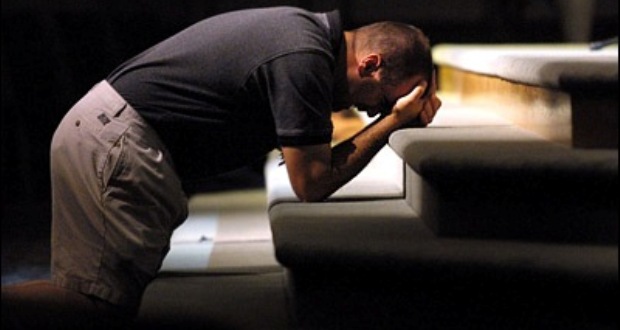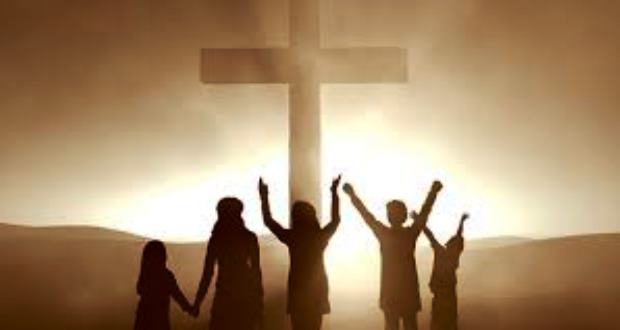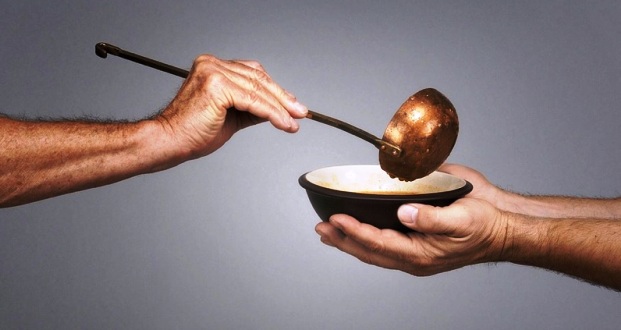The Prayers Of The Pharisee And The Tax Collector

READ LUKE 18:9-14
MEDITATION: When the Pharisee begins to prayer, he is quick to tell the Lord how things really are. He brags about his righteousness, by comparing himself to other men. He brags about his religious works; He brags about his giving; He tells the Lord how great he is and how well he is doing. As he compares himself to others, he feels that he has arrived in the eyes of the Lord. He feels like he is talking to the Lord, but in truth, he is only talking to himself. His prayer got no higher than the roof of his mouth. The Pharisee did not really go to pray; he went to inform God how good he was. God help us to never be like this man!
The Tax collector does not offer any words of self-glorification. He knows He is a sinner. When he prays, there is no pride, no pretense, no hint of self-righteousness and no attempts to justify himself or his lifestyle before the Lord. He just tells the truth, humbles himself before God, and asks for mercy. He won’t even lift his eyes toward heaven. He beats himself on the breast, knowing that his real problems are problems of the heart. His prayer is short, simple and to the point.
The Pharisee wasn’t really a bad guy. He had a lot going for himself. The record shows he was honest and did not cheat on his neighbor. How are we in these departments? He fasted two times a week. Do we fast? He gave 20-30% of his income to God. The charts show that we in terms of income are less giving than our parents. He prayed at least three times a day. When some of us come to Sunday church, we feel that we are doing God a favor. A few of us even slip out before the Liturgy is ended. If in doing so we give bad example to young people, that is their problem and not ours. If the Pharisee believed in the Eucharist as we say we do, we would not be able to dynamite him out of a church. If only we could imitate the Pharisee in what Joseph Donders calls the Big Three: prayer, fasting, and good works. The world about us would be a more delightful place to live in!
The prayers of the tax collector and the Pharisee were very different. The Pharisee was fulfilling an obligation in the Law to worship. He made sure that God remembered what a great person he was and would give him the reward he felt he deserved. He was also a proud fellow. William James reminds us: “A great many people think they are thinking when they are really rearranging their prejudices.” His prayer consisted of trumpets to his humble self. The object of worship was himself. He was telling God there were only two perfect people – himself and God.
However, the tax collector didn’t make any comparisons, nor did he try to remind God of any of the good things he had done in his life. He didn’t say, “I know I’ve done wrong, collecting taxes for the Romans from my own people and making a profit on it for myself, but I also fed my neighbor’s family when he died suddenly, and I routinely give money to beggars.” His prayer was simply, “Lord, have mercy on me a sinner.”
This parable reaches to the core of our relationship with God. The difference between the Pharisee and the Tax Collector is that the Pharisee judges others while the Tax Collector judges himself. Besides boasting to God, the other glaring fault in the prayer of the Pharisee is that he adversely judges his neighbor. In the very act of praying the Pharisee commits a sin. Unfortunately, many of these same problems have crept into the prayer life of the modern church. Keep in mind though that:
- God is not impressed by the length, volume and vocabulary of our prayers. This man prayed a short, simple to the point prayer and God heard him. In fact, we are warned against long, elaborate, repetitive prayers, Matthew 6:6-7.
- Prayer is not a time to preach. When the Pharisee prayed, he was not talking to the Lord; he was talking to himself and for the benefit of those around him.
- Prayers should be specific and to the point, rather than general and rambling. We should go before the Lord honor Him, seek Him and then get out of His presence. It is better to keep your prayers sweet and specific.
- Prayer is not a time to brag. Prayer is about the Lord and His glory, not about who we are, what we think, what we want, or what we have done.
- Prayer is time to seek the face of God; to ask Him to bless; to ask Him to move among; to pray for those around you; to humble yourself before the Lord; to acknowledge your own need of Him! We should use our public prayers, not as a time to exalt our spirituality, but to praise and glorify God; to seek His power; and to thank Him for His blessings.
One man went to church and left with nothing. He went through the rituals. He judged others by his standards. He prayed his self-serving prayers. He worshiped himself. This man went home feeling good about himself, but He received nothing from God for his efforts. The other man went to church and left with everything. He didn’t make a spiritual show. He prayed a simple prayer. He offered God honesty, confession and worship. He left that church right with the Lord.
What was the difference between the two? The difference was in the attitude and condition of their hearts. One was full of himself and thought he needed nothing more. The other knew he was nothing and possessed nothing. He humbled himself before God and he was blessed.
How do you come to church? How do you see others around you who don’t do things to your standard? How is your praying? When you leave church, do you feel better about yourself? If that is all you get that you have missed it all. Or, when you leave, do you feel as though you have had a spiritual bath? Do you feel as though you have bathed in the Word and that the Spirit has washed you? Do you feel as though you have been honest before the Lord, open about your sins and willing to call on Him by faith? Instead of judging others, are you content to leave them with the Lord? If they are His children, He will deal with the errors in their lives!
ACTION: I EXPECT THAT BY NOW YOU WOULD HAVE CONCLUDED ARRANGEMENTS FOR THE LESS PRIVILEGED THAT YOU WILL BE BLESSING THIS EASTER. IF YOU HAVEN’T, MAKE HASTE. YOU NEED TO HAVE A SPECIFIC EASTER PROJECT OF SOME SORT TOWARDS THE LESS PRIVILEGED. IN TIMES PAST, THE PRIEST HAD TO SIGN YOUR BAPTISMAL CARD EACH YEAR AT THE COMPLETION OF YOUR EASTER PROJECT.
PRAYER: Holy god, Lord most gracious! Rebuke us not in your anger, nor chasten us in your wrath! Holy you have called us to come to you. We feel unworthy, for we have failed you again and again. We feel like running away, yet you keep calling us. Have mercy on us, O God. Have mercy!
Holy God, Father most gracious! Rebuke us not in your anger, nor chasten us in your wrath! Heal us from our sin, for we are troubled. Deliver us for the sake of your steadfast love. Our sins trouble us, O God. We are troubled by how they have hurt others. We are troubled by how they have hurt us. Your ways are right! O righteous God! And whenever we have refused to follow them we have found out how right they are. Have mercy on us, O God.
Holy God, God and Father of our Lord Jesus Christ, have mercy on us for the sake of your Son, who died to free us from our sins. To you be honor and glory! Amen.
The Book of Common Worship






